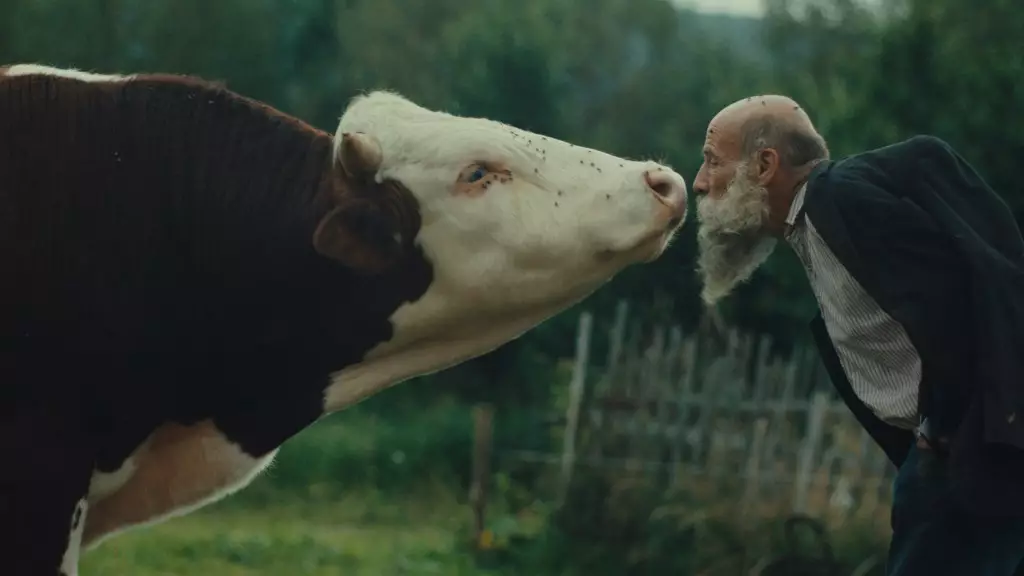At first glance, films like “Better Go Mad In The Wild” appear to celebrate raw, unfiltered life outside the mainstream. They offer a glimpse into worlds untouched by modernity—faded farmhouses, old men with bearded faces, surviving against the odds. Yet, beneath this romantic veneer lies a troubling tendency to idealize the rugged individual as a symbol of authenticity and purity. As viewers, we are often invited to overlook complexities, embracing a narrative that venerates “simple living” while neglecting the human cost behind it.
This attitude feeds into a broader cultural illusion—that extreme austerity or eccentricity equates to virtue. We romanticize the outliers, projecting onto them a notion that living off the grid or in defiance of societal norms inherently makes one admirable. But this perspective dismisses the structural factors—economic, political, social—that shape their existence. Is it truly admirable to retreat from societal responsibilities or to live disconnected from the world’s interconnected challenges? When documentaries gloss over these realities, they risk perpetuating a sanitized view of marginal life that ignores the toll of isolation, poverty, and neglect.
Selective Vulnerability and the Art of Narrative Manipulation
Remo’s film, like many in its genre, offers a delicate dance of selective storytelling. The brothers’ candid moments—naked ambles, spirited debates, and occasional drunken confessions—are undeniably captivating. However, these glimpses often serve as curated windows into their eccentricity rather than exposing their deeper struggles or societal implications. The narrative subtly reinforces an idealized image of authenticity—stubborn survivors who have chosen to reject modern life—while sidestepping critical reflection.
This approach raises concerns about the ethical responsibilities of documentary filmmaking. Does the lens distort reality by focusing only on what makes subjects endearing or exotic? The film’s sparse backstory, including the brothers’ history of political activism, is revealed only in fragments. This selective disclosure can create a distorted perception—a sense that these individuals are simply quirky characters rather than complex human beings shaped by systemic forces. Such storytelling choices shimmer with charm but risk trivializing the very real socio-economic issues that force many into similar lives.
Ignoring Structural Realities in Favor of Personal Narratives
While stories of individual resilience resonate on a human level, they should not eclipse the broader socio-political context. The brothers’ participation in the Velvet Revolution hints at a profound engagement with societal change, yet the film chooses to obscure these details. Instead of framing their lives within the scope of Czech history, the narrative immerses itself in their personal eccentricities, which, while entertaining, can inadvertently romanticize displacement and disenfranchisement.
This tendency is problematic because it simplifies complex social phenomena into personal quirks. The romanticization of living in a crumbling farmhouse, or of embracing a self-made solitude, risks overlooking the systemic inequities—or political repression—that might make this lifestyle appear appealing or necessary. It’s a seductive narrative—one that celebrates rugged independence but conveniently ignores the realities of structural poverty, ecological challenges, or political marginalization that many individuals face in similar conditions.
The Double-Edged Sword of Eccentricity
Characters like the Klišíks embody a paradox: they fascinate as symbols of defiance and authenticity, yet their eccentricity can serve as a barrier to more meaningful understanding. Their candidness, cloaked in humor and rough charm, masks deeper vulnerabilities—none of which are fully unpacked in the documentary. By focusing primarily on their quirks, the film deflects from exploring how their lifestyle impacts their well-being, social connections, or future prospects.
Eccentricity, when fetishized, often becomes a form of performance—a way to commodify the “authentic” life for entertainment rather than a sincere exploration of human resilience. As viewers, we may applaud their independence while turning away from the uncomfortable question: Is this truly a sustainable way to live? Or is it a form of quiet despair masked by stubbornness and humor? These are questions that deserve more than fleeting insights and amused observations.
The Danger of Narratives That Glorify Marginalization
The central danger in films like “Better Go Mad In The Wild” is their potential to romanticize marginality without addressing its true implications. By portraying the brothers as charming relics of a bygone era, the movie echoes a flawed bourgeois nostalgia that celebrates poverty and eccentricity as virtues in their own right. This kind of romanticism can inadvertently diminish the urgent need for social justice, economic reform, and collective responsibility.
While storytelling that humanizes marginalized groups is important, it must be rooted in truth—not fantasy. Glorification can foster complacency, as it suggests that survival and authenticity are enough, without critically engaging with the systemic issues that produce such lifestyles. Culture should challenge us


Leave a Reply